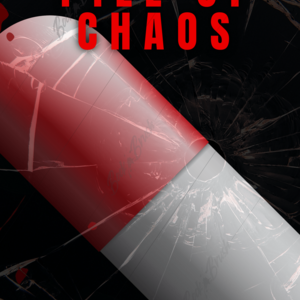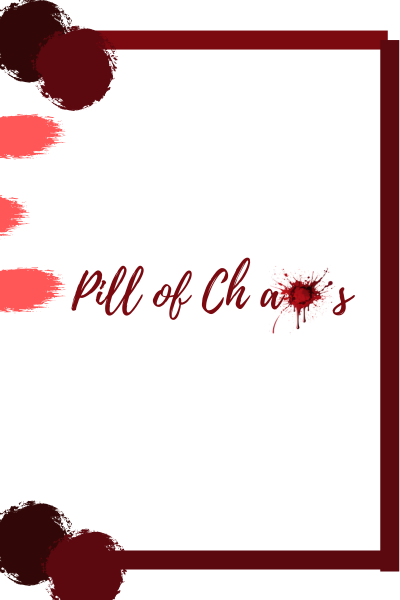The memory floods my mind, vivid and haunting. I remember us as children, huddled in dark corners, wearing ragged clothes that barely shielded us from the cold. We were orphans, unwanted and forgotten, each of us identified only by code names rather than real names. Winters were the hardest, with the biting cold seeping through the stone floors where we tried, in vain, to keep warm by huddling together.
The outside world was a mystery to us. We lived in ignorance, our only interactions with the outside coming from masked figures who would occasionally visit. They were faceless and cold, and their presence was always accompanied by fear. We were handcuffed and blindfolded, and carried to a place we dreaded—the Dooms.
The Dooms was a place of torment. We were laid on metallic beds, restrained by straps, while faceless figures observed us from behind a glass barrier. They subjected us to unbearable pain through machines designed to inflict extreme bodily suffering. Blood would often flow from our mouths as the agony consumed us. It was hell, but somehow, we survived. We were nothing more than test subjects for the 5Xc pill.
The number of children dwindled day by day until only ten of us were left. Among them, one child had it the hardest. His code number was '6000-S'. He was different—his emerald-green eyes and bald head set him apart. He rarely interacted with others and frequently tried to escape. Given extra dosages of the pill’s chemical through an IV bag, he spent most of his time in a corner of the room, silent and withdrawn. He would sometimes cry, suffering from frequent attacks.
One night, as I lay tossing in my sleep, I heard him throwing up. I approached him quietly. “Maybe you should remove the bag?” I suggested.
He shook his head vigorously, his voice trembling. “No, they’ll put me there again… Good kids do what they’re told.” Tears streamed down my face as I wrapped him in a comforting hug. We both cried silently, the start of a deep bond between two souls entwined in shared despair.
“You care about the children, don’t you?” he asked, his voice barely a whisper.
“Yes, I do,” I replied, my heart aching. I often took care of the children, sharing food, blankets, and warm conversations. On cold nights, we were like a family, trying to find comfort in each other’s company.
‘6000-S’ looked at me with a glimmer of hope in his eyes. “If we ever get out, what would you like to do outside?”
The question took me by surprise. It felt strange to think about a world beyond our confinement. “I’m not sure,” I admitted. “But if I were to get out, I want to create a place where children are safe. It’s the only thing I can think of.”
Before we could discuss further, the door burst open. “Take them all in,” ordered a new set of masked figures who stormed into the room. They ushered us into a different chamber—an empty, sterile space with a single chair in the center.
A man wearing a fox mask entered and sat down, his eyes gleaming with cruel anticipation. “Welcome, dear children,” he greeted with an unsettling cheerfulness. “My ten pupils that survived.” He continued with a sinister tone, “Time to see what my work has done to you.”
We stood in fearful silence as he approached the first person—a girl with brown hair and black eyes, known only by her code name, “9800-V.” He moved closer, pulling out a gun with a deliberate slowness that made every second stretch into eternity.
“Defend yourself. Show me what you can do,” he demanded, pointing the gun at her. The shot rang out, striking her in the shoulder. Her scream pierced the room, a horrific sound of pain and despair that echoed in the hollow space.
The man seized her by the collar, his face twisted in rage. “Then why the hell are you alive? Erase her!” he roared.
A second shot followed, and she collapsed to the ground, lifeless. Blood pooled on the floor, mingling with the sounds of shouting, screaming, and crying that filled the air.
“Yes, fear—that’s what I want,” the man declared, his voice laced with twisted satisfaction.
He moved to the next child, and then the next. Each time, the result was the same—another body on the ground. My legs trembled, refusing to hold me up any longer, and I collapsed. The man stopped in front of me, towering over my trembling form.
“Why are you breathing?” he sneered, raising the gun. The sound of the shot was deafening.
The next thing I knew, I was outside, the cold air hitting my face as I ran. I didn’t know how I got out or when I started running, but I didn’t stop until the place was far behind me.
I reached a street that smelled of fresh bread. I stood outside a bakery, watching as warm loaves and pastries were pulled from the oven. The door creaked open, and an old woman stepped out, her eyes full of concern as she looked at me.
“Aren’t you cold? Where are your parents?” she asked, her voice gentle but unfamiliar, like a memory from a time I couldn’t recall.
“No p-parents, no p-p-place to go,” I stammered, shivering.
The woman exchanged a glance with her husband, who had appeared behind her. Without another word, they decided to take me in.
“What’s your name, kid?” the man asked, but I didn’t have one. I kept my gaze down, avoiding his eyes.
“Auburn,” the woman said softly, her eyes on my brown hair. “Your name will be Auburn.”
The husband nodded. “That’s a good name,” he agreed. “It suits you.”
It all felt warm and nice. I couldn’t hold back my tears. “Oh dear, you didn’t like it?” the woman asked, concern lacing her voice.
But I did like it. The name ‘Auburn’ felt warm to me; it gave me something I had always wanted—an identity and a place in a warm world.











Comments (0)
See all